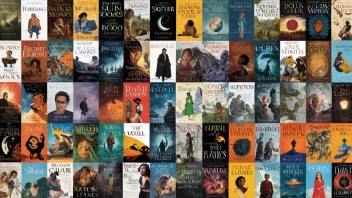Creating compelling characters is one of the most critical aspects of writing fiction. Whether you are a seasoned writer or just starting, understanding how to craft characters that resonate with readers can elevate your storytelling. Below are some frequently asked questions about writing engaging fiction characters.
What makes a character compelling?
A compelling character often has depth, complexity, and relatability. Readers should be able to empathize with the character's struggles, desires, and growth. A compelling character also challenges themselves or confronts internal and external conflicts, making their journey interesting.
How do I develop a character's backstory?
To develop a character's backstory, consider their upbringing, major life events, relationships, and formative experiences. Ask yourself questions such as: What shaped their beliefs and values? What are their fears and motivations? This background information will inform the character's decisions and personality throughout your story.
Should characters be likable?
While likable characters can draw readers in, not all characters need to be inherently good or relatable. Antiheroes or morally ambiguous characters can be equally compelling if they are well-developed and have relatable motivations. The key is to make them interesting and multi-dimensional.
How can I create character arcs?
A character arc is the transformation a character undergoes throughout the story. To create a strong character arc, establish a clear starting point for your character, identify their goals and challenges, and show how they evolve in response to their experiences. This progression should feel organic and believable to the reader.
What role do dialogue and interactions play in character development?
Dialogue and interactions reveal a character's personality, beliefs, and relationships with others. Through their words and actions, readers gain insight into their motivations and inner conflicts. Writing authentic dialogue that reflects each character's voice is essential in developing them further.
How do I avoid clichés in character creation?
To avoid clichés, strive for originality by going beyond stereotypes and common tropes. Develop characters with unique traits, backgrounds, and motivations. Consider mixing traits or flipping typical character roles to create something fresh and engaging. Utilize real-life experiences and observations to inspire more authentic characters.
How important is physical description?
While physical description can enhance a character's presence, it should not define them entirely. Focus on characteristics and traits that influence behavior and personality. Use physical description to complement the character's actions and interactions rather than as the sole identifier.
How can I make sure my characters are diverse and inclusive?
To create diverse and inclusive characters, research and engage with perspectives outside your own. Avoid tokenism by giving characters depth and agency, and develop their stories authentically. Listen to voices from different backgrounds and incorporate their experiences into your writing.
Should I base characters on real people?
Using real people as inspiration can add authenticity, but it's important to maintain a level of creativity and separation. Instead of copying someone directly, consider their traits, experiences, or quirks and blend them with your imagination to create a fully realized character.






